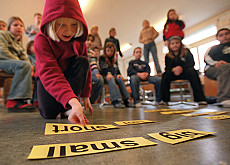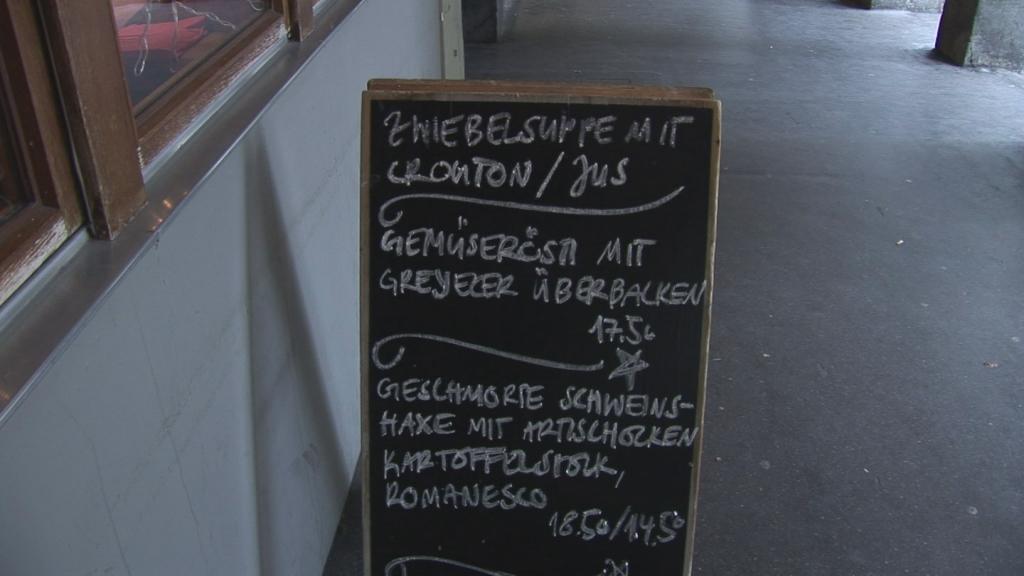Politicians accused of doublespeak on languages

Swiss politicians fail to recognise the value of multilingualism when the languages spoken are not the national tongues or English.
That is one of the key findings of a National Science Foundation study looking at political debates on language issues over the past five decades.
From the 1960s until the 1990s, discussions in parliament focussed on ensuring equality among the official languages, German, French, Italian and Romansh, as well as dialogue between the language groups.
Politicians also expressed support for courses offered to immigrants in their own languages to help their reintegration back into society if they were to return to their homeland, as they were expected to do at the time.
A turning point came in the second half of the 1990s, according to authors Damir Skenderovic and Christina Späti of Fribourg University’s Contemporary History department.
This is when English – due to globalisation – became part of the debate on languages. One question was whether it should be taught in schools as the first foreign language ahead of German, French or Italian.
Stay, not go
At the same time, political parties, confronted with the realisation that immigrants were staying and not going home, began to emphasise the importance of learning an official language as part of the integration process.
This came at the expense of immigrants’ mother tongues.
“It was no longer necessary for them to know their own languages. It was even considered harmful for them to know a second language, since it went against integration into a homogenous society,” Skenderovic told swissinfo.ch, summing up the tenor of the political debate.
Späti says politicians have ignored the fact that Switzerland has become a land of immigration with ten per cent of the population claiming a language other than German, French or Italian as their mother tongue.
The authors argue in their conclusions that the ability to speak non-official languages should be valued, as is the case in Canada, where Späti also scrutinised political debate.
Arabic
“For example, languages such as Chinese and Arabic are more highly appreciated [than they are in Switzerland]. They are seen as economic assets, whereas in Switzerland that’s only the case with English,” Späti explained.
Skenderovic says pressure on immigrants to learn a national language shortly after they arrive in the country – without recognition of the importance of their own language – shows that many politicians do not want to stop at integration, but want to see foreigners completely assimilated.
However, Simone Prodolliet, director of the Federal Commission for Migration Issues, says the reality on the ground often differs greatly from the public debate.
Prodolliet told swissinfo.ch that a lot of pilot projects have been initiated across the country to encourage children to learn the local language as well as the one spoken by their parents.
“The importance for schoolchildren to retain their mother tongue has been recognised. The command of that language is a precondition for learning other languages well,” she says.
A-B-C
“Teachers are making efforts to acknowledge children’s mother tongues but that doesn’t mean lessons are taught in Turkish, for example.”
Prodolliet admits that barely a word is spoken in favour of non-national languages at the political level, and agrees that fluency in these languages should be recognised as an additional qualification.
At the very least, the National Science Foundation study makes a case for broadening the language debate.
“In Switzerland a lot more people speak Croatian or Serbian than Romansh. Would it be a threat to Romansh if we gave more rights to migration languages, or would it perhaps have a positive effect if we generally agree that Switzerland is a multilingual country and give rights to minority languages?” asks Späti.
Dale Bechtel, swissinfo.ch
The study on Swiss language policy since the 1960s is part of a larger investigation into language by the Swiss National Science Foundation.
“Language diversity and language skills in Switzerland” includes numerous projects focussing on multilingualism in schools, language skills of adults, linguistic rights, the importance of multilingualism in business and language and identity.
Figures from a federal census conducted in 2000:
National languages
German 63.7%
French 20.4%
Italian 6.5%
Romansh 0.5%
Non-national languages
Serbo-Croatian 1.4%
Albanian 1.3%
Portuguese 1.2%
Spanish 1.1%
English 1.0%
Turkish 0.6%
Tamil 0.3%
Arabic 0.2%

In compliance with the JTI standards
More: SWI swissinfo.ch certified by the Journalism Trust Initiative















You can find an overview of ongoing debates with our journalists here . Please join us!
If you want to start a conversation about a topic raised in this article or want to report factual errors, email us at english@swissinfo.ch.